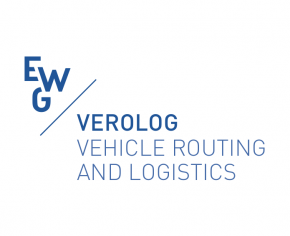VeRoLog is excited to launch its new initiative: the VeRoLog Webinar. It takes place every last Thursday of each month, from 4 p.m. to 5.30 p.m. (CEST) and it will feature plenary talks, paper presentations from academia and/or industry as well as interviews with famous researchers from the VeRoLog community.

Special Webinar: March 31, 2022, 4pm (CEST)
Winners of the VeRoLog Doctoral Dissertation Prize: Their Research Before and After Receiving the Prize
Mor Kaspi (Tel Aviv University) will talk on “Routing and Scheduling Autonomous Vehicles Prior to Their Widespread Adoption”
Alexandre Florio (Polytechnique Montréal) will talk on “Solving Large-Scale Dynamic Vehicle Routing Problems with Stochastic Requests”
Timo Gschwind (Technische Universität Kaiserslautern) will talk on “An Electric Vehicle Routing Problem for Autonomous Mobile Robots in Intralogistics Systems”
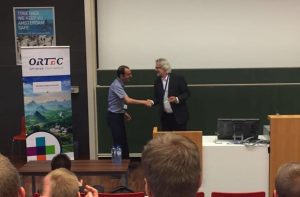
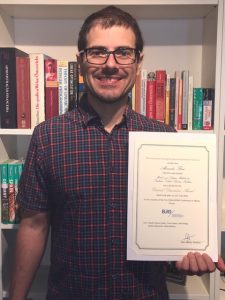
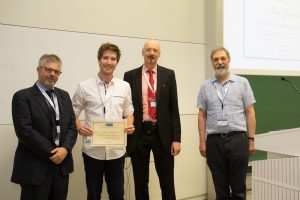
ZOOM LINK: https://unipd.zoom.us/j/81263801631?pwd=Mm5FN1FxMFlUOC9hM0ZKQzY0NEYxUT09
Meeting ID: 81263801631
Passcode: 882231
Past Webinars
Recordings of past webinars are accessible to VeRoLog members (please log in) via this link. If you want to become a VeRoLog member, please register here.
February 24, 2022, 4pm (CET)
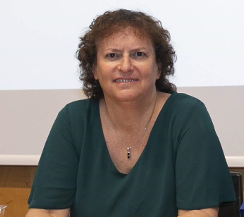
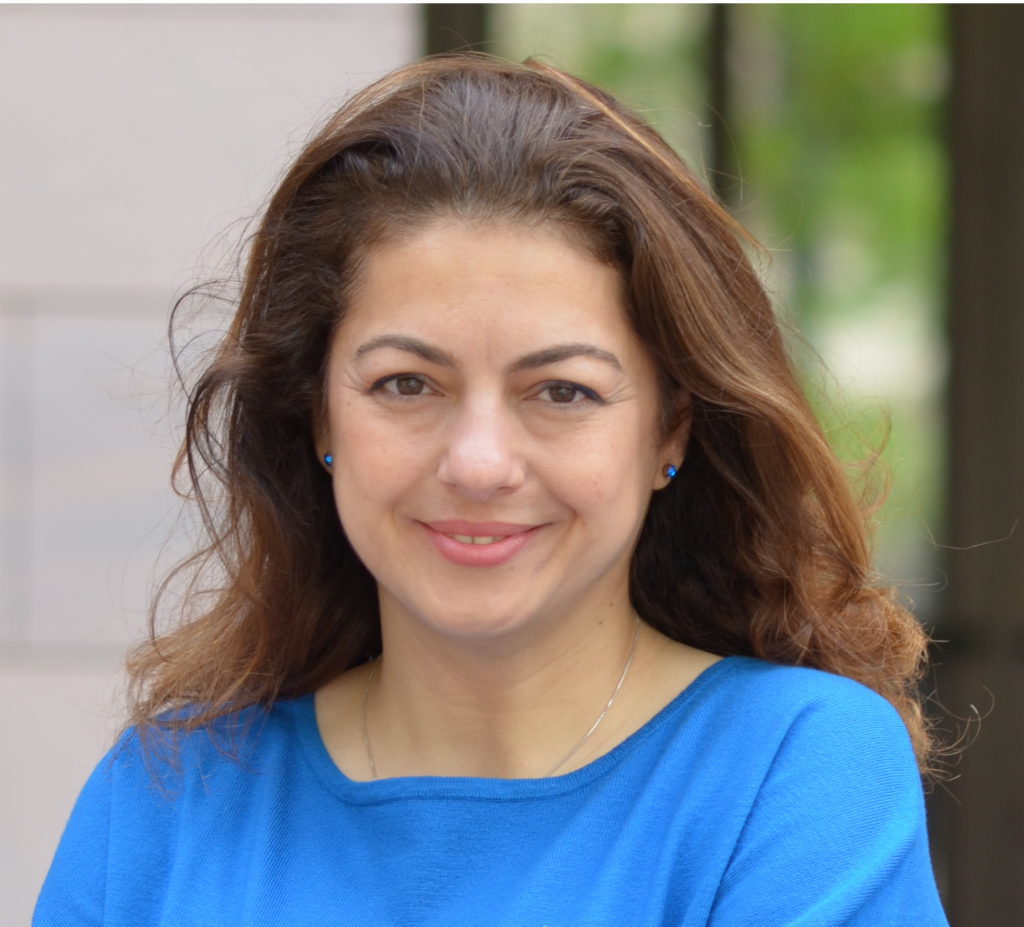
Research talk: “The Static and Dynamic Humanitarian Pickup and Distribution Problems“
Michal Tzur (Tel Aviv University)
Abstract: Food rescue, the collection of perishable products from food suppliers who are willing to make donations, and their distribution to welfare agencies that serve individuals in need, has become increasingly widespread in recent years. The problem we study focuses on the logistic challenges of a food bank that on a daily basis uses vehicles of limited capacity to distribute food collected from suppliers in the food industry to welfare agencies, under an imposed maximal traveling time. We model this problem as a routing resource allocation problem, with the aim of maintaining equitable allocations to the different agencies while delivering overall as much food as possible. We introduce an innovative objective function that satisfies desired properties of the allocation, that is easy to compute and implement within a mathematical formulation, and that balances effectiveness and equity acceptably. Then, we develop solution methods for both the static and dynamic versions of the problem. In the former, the suppliers’ donation quantities are known before the vehicle leaves the depot. For this problem, a heuristic solution method is developed based on a large neighborhood search, which relies on a certain subproblem that is easy to solve. In the latter case, information regarding donation quantities arrives gradually over time, when the vehicle has already started its route. The problem is formulated as an MDP and solved via a reinforcement learning algorithm. Numerical experiments on several real-life and randomly generated data sets confirm that high quality solutions are obtained for both the static and dynamic versions of the problem.
Research talk: “Relief Aid for En Route Refugees (RA4ER): A Multi-Period Capacitated Mobile Facility Location Problem for Mobile Demands“
Sibel Salman (Koç University)
Abstract: Humanitarian organizations aid en route refugee groups who are on their journey to cross borders by mobile facilities. We study the problem of deciding the number, routes, service providing locations, and periods of such mobile facilities. In each period, each refugee group moves from one node to an adjacent one in their predetermined path. For the continuum of service, each refugee group should be served at least once in a predetermined number of consecutive periods. Each mobile facility can provide service only for a fixed number of refugees in each period. We minimize the sum of the fixed setup costs, daily operational costs, and travel costs while ensuring the service continuum requirement. We develop a matheuristic and a Bender’s decomposition algorithm and test them on the 2020-2021 Honduras Migration Crisis data. We drive some insights for decision-makers.
January 27, 2022, 4pm (CET)


Plenary talk: “Strategic berth template problems“
Elena Fernández (Universidad de Cádiz)
Abstract: In this talk new formulations will be discussed for the Strategic Berth Template Problems, which combine strategic and operational decisions for medium-term berth planning of a given set of cyclically calling ships. The strategic decisions determine the ship calls that will be served, whereas the operational ones establish the berth template that will be applied in a cyclic fashion in the planning horizon.
One of the classical modeling assumptions of the SBTP is that it is homogeneous, in the sense that the length of the cycle is the same for all calls. In this talk we discuss the homogeneous SBTP (Ho-SBTH) and introduce the heterogeneous STBP (He-SBTH), its extension where it is no longer assumed that all ships have the same cycle length (“frequency”). Two variants of the He-SBTP will be considered: one variant assumes that the frequency of each ship is fixed throughout the whole time horizon, whereas the second one allows some flexibility in the time between two consecutive arrivals.
The MILP formulations developed for all the considered problems use binary variables that classify served ships depending on whether or not their service starts in their arrival cycle or in the next one. This helps modeling the problem, since a closed linear expression can be obtained for the waiting times. Additional binary variables allow determining the number of ships being served simultaneously at each time period.
Numerical results from computational tests over a set of benchmark instances from the literature are presented and analyzed. The obtained results assess the good performance of the proposed formulations.
followed by an interview with
Gilbert Laporte (HEC Montréal, University of Bath, Molde University College)
November 27, 2021 4pm (CET)


Research Talk: “A Tutorial on Electric Vehicle Routing”
Michael Schneider (RWTH Aachen)
Abstract: In this talk, we discuss the main variants of electric vehicle routing problems treated in the literature, give pointers to good entry points for young researchers, and outline interesting topics for future research. For example, we propose to consider EVRPs as a special variant of VRPs with intermediate stops and to concentrate on the development of more general solution frameworks for this problem class.
Research Talk: “Integrating Electric Vehicles in Logistics: Issues and Perspectives“
Ola Jabali (Politecnico di Milano)
Abstract: The issues related to the use and integration of electric vehicles in logistics activities have triggered a wide range of transportation science problems. In this talk we review recent advances in this area. In particular, we present battery charging and discharging patterns should be considered. We discuss the modelling of battery degradation processes. These are integrated within the context of scheduling charging activities at depots. Furthermore, considering energy consumption uncertainty, we examine issues related to designing reliable routes. Finally, we elaborate several formulations and algorithmic components for situations where electric vehicles may deviate from their routes to perform recharging activities.
October 28, 2021, 4 pm (CEST)


Plenary talk: “City Logistics : How to combine delivery services?“
Frédéric Semet (Centrale Lille and INRIA)
Abstract: E-commerce is a thriving market around the world and is very well suited to the busy lifestyle of today’s customers. An annual survey conducted by the analytics firm comScore revealed that American consumers purchased more things online than in stores in 2016. This growing e-commerce poses a major challenge to transportation companies, especially when it comes to last-mile delivery. To meet this challenge, companies offer various delivery services such as home or workplace delivery, delivery to lockers, Pick-up&Go services or trunk delivery …
In this presentation, we present and discuss these different types of delivery services as well as models and solution methods to address them simultaneously.
followed by an interview with Editor-in-Chief
Dominique Feillet (École des Mines de Saint-Étienne)
September 30, 2021, 4 pm (CEST)


Research talk: “Complex Traveler Preferences in Multi-Modal Routing“
Jan Fabian Ehmke (University of Vienna)
Abstract: Under the umbrella of mobility as a service, travelers can easily find the cheapest or quickest travel itinerary with mobility-as-a-service platforms. However, travelers often have more complex preferences, e.g., the combinations of multiple requirements such as reliability, price, and walking time. For these, the functionality of current platforms is quite limited, which is due to the complexity of data processing and search algorithms.
In this talk, the current functionality of mobility-as-a-service platforms is presented, and novel approaches at route finding with complex and multiple traveler preferences are introduced. Computational complexity, as well as the usefulness for travelers, are also discussed based on two case studies with real transportation service data.
Research talk: “Autonomous electric vehicles for passenger transport and last mile deliveries in cities“
Jakob Puchinger (IRT SystemX/CentraleSupélec – Université Paris Saclay)
Abstract: Connected autonomous vehicles for urban mobility and freight delivery have not been deployed at a large scale yet, contrary to many prediction from a few years ago. What where the promises and fears? How will increasing robotisation and connectedness shape our cities? What about the people living in the cities? After discussing this context, some of the research at the Anthropolis chair will be presented ranging including simulation and optimization based approaches for shared autonomous vehicle services and robot deliveries.
August 26, 2021, 4 pm (CEST)

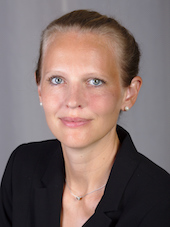
Research talk: “Routing a fleet of gliders“
Maria Battarra (University of Bath)
Abstract: This talk will discuss routing algorithms for a fleet of gliders. Gliders are unmanned flying vehicles without a propulsion system, and they are most commonly deployed to take aerial pictures or collect information via sensors. The advantages and disadvantages of gliders will be discussed, and compared and contrasted with drones. Applications in surveillance and humanitarian settings will be presented. The underlying routing problem is modelled by explicitly accounting for flying dynamics, and alternative linearization techniques are tested to make the problem tractable. We propose a metaheuristic based on a novel sequential trajectory optimisation, which computes flyable trajectories for a given route, and a routing matheuristic, combining iterated local search and a set-partitioning-based integer programming formulation. Our computational results will showcase the strengths and weaknesses of this approach, as well as lessons learned while integrating complex system dynamics into a routing algorithm.
Research talk: “The multi-depot vehicle routing problem with profit fairness“
Margaretha Gansterer (University of Klagenfurt)
Abstract: One of the main obstacles in horizontal collaborative transportation is the proper distribution of gains among partners. In practice, a posteriori gain sharing mechanisms rarely guarantee that all partners feel fairly treated. We present the multi-depot vehicle routing problem with profit fairness, a bi-objective optimization problem that adds a fairness objective function to the classical cost minimization function. We explore the effects of integrating fairness in the optimization process. To that end, we approximate the Pareto front of any problem instance using an adaptive large neighbourhood search algorithm, embedded within an ε-constraint scheme. This problem is solved for different instance types and time horizons. We show that the economic cost of fairness is rather low and tends to decrease when fairness is considered for longer time horizons.
July 29, 2021, 4 pm (CEST)

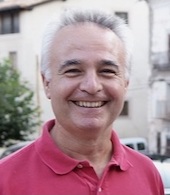
Plenary talk: “Shortest Path Problems with Resource Constraints”
Stefan Irnich (Johannes Gutenberg Universität Mainz)
Abstract: In most vehicle routing and crew scheduling problems solved by column generation-based methods, the subproblem is a variant of the shortest path problem with resource constraints (SPPRC). The SPPRC has contributed to the success of these methods in at least two ways: First, through its resource constraints, it constitutes a flexible tool for modeling complex cost structures as well as a wide variety of rules that define the feasibility of a route or a schedule. Second, there exist efficient algorithms at least for some important variants of the SPPRC. The talk presents selected examples of modeling with SPPRC and an overview of state-of-the-art methods for solving SPPRC.
Followed by an interview with
Angel Corberan (Universitat de València)
June 24, 2021, 4 pm (CEST)


Research Talk: “Machine Learning for Time Slot Management“
Niels Agatz (Erasmus University Rotterdam)
Abstract: The COVID-19 pandemic provided a huge boost to online grocery shopping. Online grocers typically let customers choose a delivery time slot to receive their goods. To ensure a reliable service, the retailer may want to close time slots as capacity fills up. The number of customers that can be served per slot largely depends on the specific order sizes and delivery locations. Conceptually, checking whether it is possible to serve a certain customer in a certain time slot given a set of already accepted customers involves solving a vehicle routing problem with time windows. This is challenging in practice as there is little time available and not all relevant information is known in advance. We explore the use of machine learning to support time slot decisions in this context.
Industry talk: “Time Slot Management in Practice“
Thomas Visser (ORTEC)
Abstract: Attended home delivery is growing, even more so during the COVID pandemic. While consumers get more and more accustomed to booking time slots online for a variety of (delivery) services, it becomes more demanding for retailers to manage the availability/incentives of time slots on their website. ORTEC offers time slot management software services which utilize dynamic vehicle routing heuristics. In this talk, we discuss some of the challenges (and opportunities for further research) of implementing such time slot management services in practice. Furthermore, we highlight some of our own research findings including recent work on dynamic time slot pricing and machine learning.
May 27, 2021, 4 pm (CET)

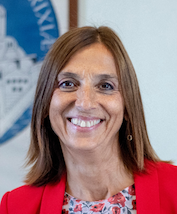
Plenary talk: “Split-demand vehicle routing problem: state of the art“
Juan José Salazar González (Universidad de La Laguna)
Abstract: The talk addresses several vehicle routing problems where customers are allowed to be visited several times to serve their demand from a fleet of vehicles. It will focus mainly on the single-vehicle one-commodity pickup-and-delivery problem which illustrates clearly the difficulties when the split-demand features must be mathematically formulated with a Mixed Integer Programming Model to be later solved with a row-generation mechanism. We will also survey early approaches for the classical Capacitated Vehicle Routing Problem and other recent variants with additional side constraints.
Followed by an interview with
Grazia Speranza (Università degli Studi di Brescia)
April 29, 2021, 4 pm (CET)

Daniele Vigo (Università di Bologna) on “Integrating Machine Learning into state-of-the-art Vehicle Routing Heuristics“
Abstract: The Vehicle Routing Problem (VRP) is one of the most studied combinatorial optimization problems for which hundreds of innovative heuristic and exact algorithms have been proposed in more than fifty years of research. Recently, some attempts were performed towards the integration of Machine Learning into heuristics to enhance their performance and guide their design. We report some initial efforts we performed in this direction and highlight the difficulties and promising research directions which merit further investigation.
Organizing Committee
Sophie N. Parragh (Johannes Kepler University Linz), sophie.parragh@jku.at
Roberto Roberti (University of Padova), roberto.roberti@unipd.it
Marlin Ulmer (Otto-von-Guericke Universität Magdeburg), marlin.ulmer@ovgu.de
Contact us if you have comments or suggestions!
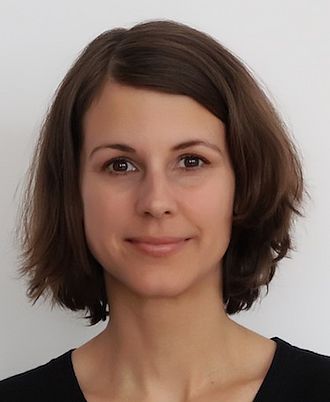


To stay up to date, bookmark the webpage https://www.euro-online.org/websites/verolog/webinar/, subscribe to the VeRoLog Newsletter, or follow us on Twitter (@EWGVeRoLog)
Disclaimer
All webinars will be recorded and made available on VeRoLog’s social media channels. By participating in the respective Zoom meeting, you agree to these terms of use as well as to VeRoLog’s data privacy policy.

